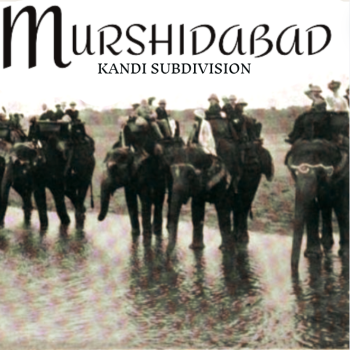 |
|
From battlefields to schoolyards
|
Judging from news accounts, the Pakistani military has been making significant inroads against the Tehrik-i-Taliban Pakistan (TTP) in the tribal agencies and Swat valley. In a report published by the Critical Threats Project, army personnel described the victory of the security forces as “long-lasting, sustainable peace”.
Operations in South Waziristan are also reported to have been largely successful in identifying and eliminating militant strongholds. Data culled from news reports shows that Pakistan’s military has made tremendous progress in dismantling Taliban operations and gaining control of previously militant-infested areas. A Gallup Pakistan poll conducted late last year showed that the majority of Pakistanis polled supported the military operation in South Waziristan in the hope that it would bring peace to the region.
However, in the midst of these military victories lies disturbing evidence that suggests that while the territorial project of the TTP may be floundering, its social project of producing a radicalised Pakistan attracted to literal and intolerant interpretations of faith is flourishing. Examples of such societal radicalisation abound, a notable one being the lack of public outcry against the rampant persecution of minorities who do not fit into the idealised mould of the Sunni Muslim Pakistani citizen.
The past month saw the rape of a Christian trainee nurse in Karachi. In the same month two Christian brothers were gunned down in Faisalabad in broad daylight while leaving a court for a hearing on blasphemy charges, while there were reports that a psychology professor, who had been on the faculty of the University of Peshawar for the past 10 years, was brutally beaten by students for refusing to convert to Islam. There are also reports that the coffin of Premchand, a Hindu Youth Parliament member killed in the Air Blue plane crash, was inscribed with ‘kafir’ before being turned over to his family.
These incidents came on the heels of the deadly attacks on the Ahmadi community in Lahore in May, which killed scores of innocent people. In the case of the trainee nurse, there are some views on how those entrusted with investigating the crime are casting the case as a Christian-Muslim issue in which information provided by the victim cannot be taken as credible because she is not Muslim.
Examples of social radicalisation are not limited to the silent tolerance of violence against religious minorities. A few months ago, Pakistan shut off for some time access to the social networking website Facebook, which had a link to content regarded as blasphemous. A poll conducted by the website Propakistan reported that nearly 70 per cent of the Pakistanis responding to the poll wanted a permanent ban on Facebook.
Similarly, we recently saw the banning of Teray Bin Laden, a comedy film that pokes fun at Al Qaeda leader Osama Bin Laden and features Pakistani pop star Ali Zafar. The affinity for bans suggests the increasing prevalence of a worldview that wants to eliminate perspectives that are repugnant, rather than develop intellectual arguments against them.
College campuses around the country provide further evidence of creeping radicalism that wishes to institutionalise a literal and dogmatic interpretation of Islam. Kinnaird College, an all women’s institution, banned “jeans and other western dress” on campus last year after the reported harassment of female students by burka-clad women who threatened violence. Similarly, in April this year, female students at the Islamic University in Islamabad were harassed and physically assaulted by a worker of the Islami Jamiat-i-Tulaba.
According to a report published in a Pakistani daily, the accused approached the women near the engineering building on campus, lectured them that taking pictures was haram and then proceeded to slap and kick one of them. This same student had earlier been accused of assaulting a female teacher. Despite all this, when female students protested, the university administration threatenedthem rather than taking action against the guilty party.
Similar acts of vigilantism designed to intimidate women and minorities continue to occur all over Pakistan without inciting even a fraction of public outcry. There have also been reports of armed men accosting women in public places in Karachi, warning them to cover themselves otherwise they would be subjected to acid attacks, while in other cases, letters have been sent to some fathers asking them to “rein in their daughters” and not allow them to be uncovered in public. Women walking in parks have been harassed by groups of men who do not think they should be out in public.
Cumulatively, all these cases point to the constriction of the Pakistani public sphere and the increasing popularity of the dogmatic, intolerant and ignorant interpretation of Islam touted by the Taliban and their ilk. Considered collectively, the most disturbing aspect of these incidents is that they are not being carried out by the Taliban but by ordinary and sometimes educated citizens who have begun to subscribe to radicalised perspectives. The students beating up women and professors, protesters wanting to ban this or that are not the uneducated, barbaric Taliban but educated, urban middle-class citizens from all over the country.
Their acts of intolerance suggest that while the Pakistani military may be winning the territorial conflict, the war for the Pakistani psyche may already have been lost. Such an appraisal begs the question of whether there is any value in fighting the Taliban for territory if we have already ceded our psyche.
Rafia Zakaria is Associate Editor of altmuslim and an attorney who teaches constitutional history and political philosophy. This article was previously published in Dawn (Pakistan).















